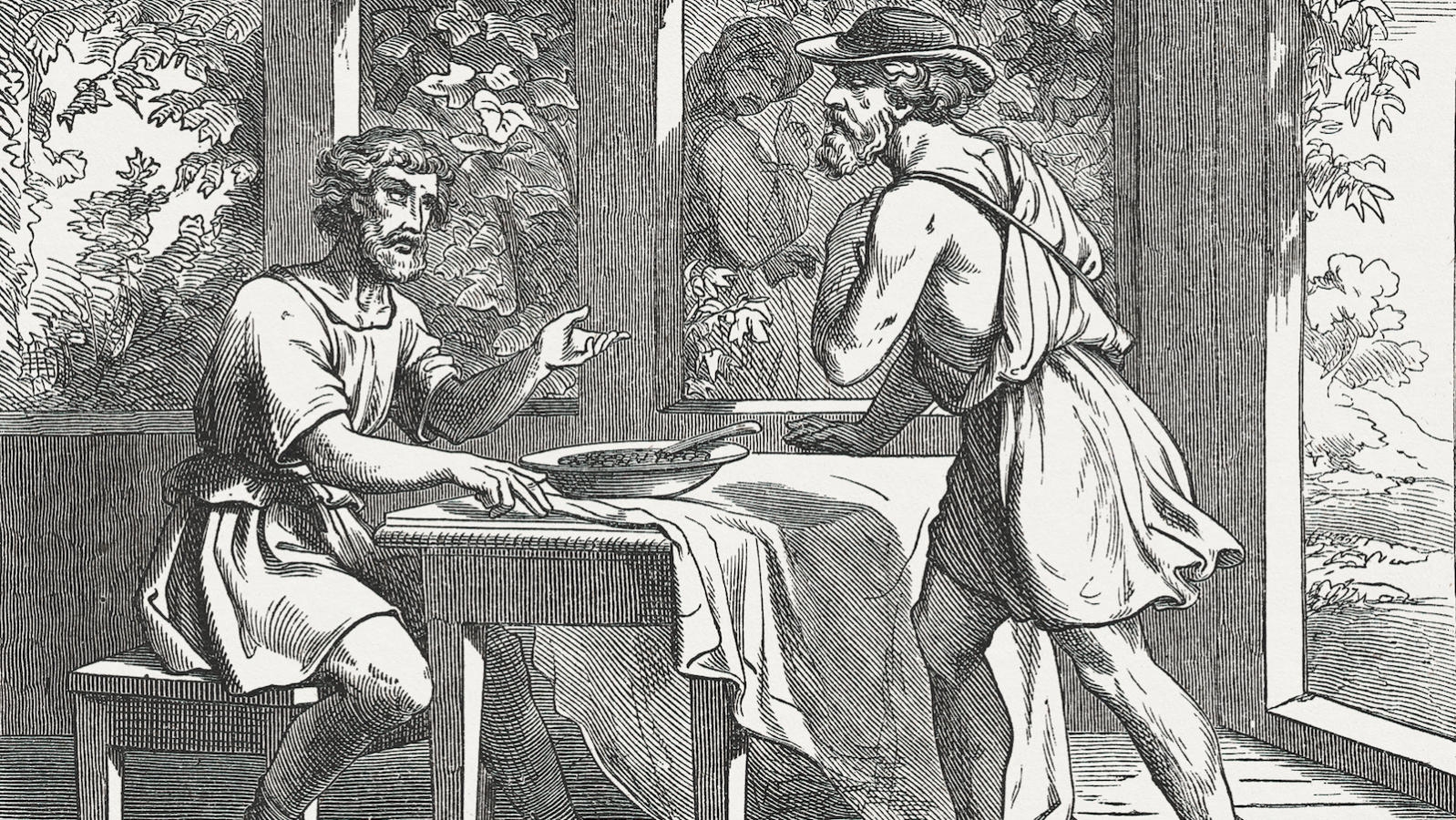Commentary on Parashat Toldot, Genesis 25:19-28:9
Esau is surely one of the most tragic figures of the Bible. He is a simple man, whose robust nature leads him to exult in his own health, strength and energy. Esau loves to hunt. He revels in the outdoors and in bursting limits. Esau is a man of impulse. Like Rambo or John Wayne, Esau thrives on his tremendous power, his physical courage and his own inner drives.
Modern America admires that. We distrust the intellectual. Someone who thinks too much, or who is too sensitive to the feelings of others (or to his own feelings) is held in disdain. We prefer a man who can impose his own will through a show of determination and strength, someone who doesn’t plan in advance, someone who can relish the moment and trust his own passions.
America accepts the romantic notion that the truest and best expression of who we are lies in the unbridled release of our feelings. Therefore, our feelings are not–and should not be–subject to control.
The Torah asserts, to the contrary, that every aspect of being human–heart, mind and soul–needs constant training, direction and restraint.
With your help, My Jewish Learning can provide endless opportunities for learning, connection and discovery.
Conflicting Approaches
The story of Esau and Jacob is the story of these two conflicting approaches to being human. Esau comes home after a day of hunting and he wants to eat. Meanwhile, Jacob has prepared a pot of lentil stew. Here, the man of action meets the man of forethought. Acting on impulse, Esau demands to be fed.
Responding with calculation, Jacob agrees to sell his stew in exchange for Esau’s birthright. Living in the present, Esau sees no benefit in his birthright. After all, it doesn’t satisfy his hunger, so his parting with his birthright represents no real loss.
Jacob, on the other hand, lives with one foot in the future. Less powerful than his burly brother, Jacob compensates by using his mind and by weighing the consequences. He prefers to skip a meal if that means he will acquire the birthright of the covenant.
What makes the Torah’s story so powerful is that we can easily understand Esau’s motivation. As Americans, we are taught from earliest childhood to admire unrestrained expressions of feelings, to treat our emotions as somehow beyond our own control, as somehow sacred. Ultimately, what makes us human is precisely that willingness and ability to control and channel our deepest drives.
The Mishnah asks, “Who is powerful?” It answers, “One who conquers his own impulse.” Jacob’s ability to control his own drives, to manipulate the present in order to thrive in the future, his ability to restrain himself now in order to benefit later, is profoundly out of touch with mainstream American values. And it is precisely that trait that lifts a person above the moment and makes the future possible. A fitting trait for the Eternal People.
Provided by the Ziegler School of Rabbinic Studies, which ordains Conservative rabbis at the American Jewish University.
Torah
Pronunced: TORE-uh, Origin: Hebrew, the Five Books of Moses.
Mishnah
Pronounced: MISH-nuh, Origin: Hebrew, code of Jewish law compiled in the first centuries of the Common Era. Together with the Gemara, it makes up the Talmud.



